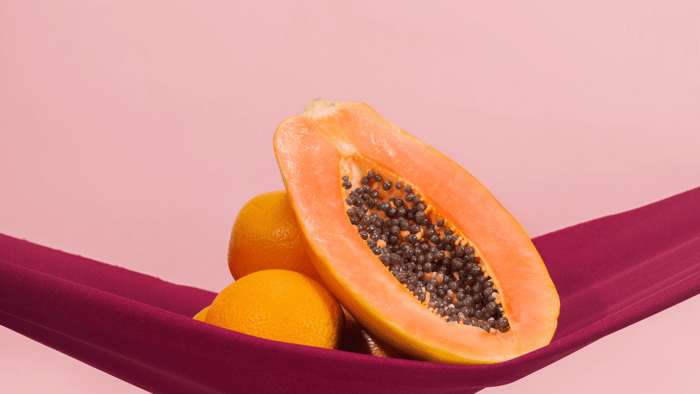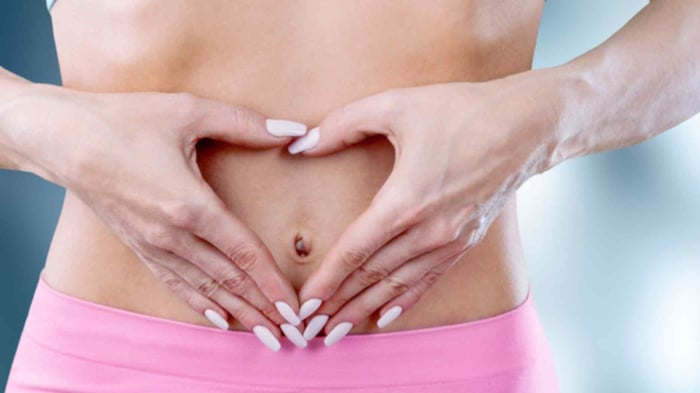
If you are a woman reading this, at some point you have most likely experienced a very painful menstrual cycle or are undergoing menopause and feeling symptoms that take away from your quality of life. And although these feelings are caused by a hormone imbalance, they can be regulated through diet and lifestyle changes with my hormone balancing tips.
Thirteen years ago I hit rock bottom with my health and was one of the statistics for hormonal imbalances. Now I live a completely new life; I don’t dread when my period is approaching and am preparing for peri-menopause and menopause. I know a lot of women are extremely anxious about this. My hope is that this article helps you embrace these changes as a beautiful part of life.
Menopause vs Perimenopause
Menopause officially sets in after it’s been more than a year since your last menstrual period. This normally begins to happen between ages 45 and 55. Perimenopause is the transitional period leading up to menopause, sometimes lasting two to 10 years.
Ten common symptoms of menopause include:
- Hot flashes
- Irregular periods
- Weight gain
- Slowed metabolism
- Vaginal dryness
- Chills
- Night sweats
- Mood changes
- Headaches
- Cognitive changes
Hormones, Food, and Environment

In the last 12 years with my work as a nutritionist, health coach, and natural food chef, I have witnessed hormonal imbalances heal and transform. I have had success with all of my patients who have applied what I am about to share. It can’t not work.
I started this research in my late 20s to help some family members going through menopause, and to be prepared when it is my time. When we clean up our diet (which is doable through replacement therapy) and our environment, our body responds very well by reducing stress. Certain foods do cause stress on the body, which is one of the causes of hormonal imbalances. These foods are called anxiogenic.
Lifestyle, Environment, and Hormones
Your health really can change, your body wants to heal, and your hormones can balance. The people who need this message are women sick and tired of suffering from hormonal issues without realizing they are doing it to themselves by what goes in their mouths.
People have a lot more power than they realize. I didn’t realize life could be so good. I had gotten used to suffering and pain for so long. Now I experience bliss in my health every single day.
None of us are immune. If we eat a poor diet, we will suffer the consequences, it comes up somewhere in our health, and for women, it shows in our hormones. Our hormones are fundamental to all the systems of your body, to your weight, sleep, cognitive function, mood, digestion, and more. They tell your body how to breathe, how happy you are, and how much energy you have.
Our environment can also contribute to uncomfortable symptoms while going through menopause. This includes fire retardants found in old carpets, lead found in old paint and tap water, perfluorinated chemicals (PFCs) found in non-stick cookware, a coating on clothing, furniture, and carpets, glycol Ethers also known as 2-butoxyethanol (EGBE) and methoxydiglycol (DEGME) found in solvents in paints, cleaning products, brake fluid, and cosmetics.
Foods and Ingredients to Avoid
The key is to remove the hormone disruptors from your lifestyle and then add in foods that nourish your hormones to ensure they can function properly and do their job. Hormone disruptors can come in the form of food, skincare products, and environmental factors. The biggest hormone disruptors in food are:
- Refined sugar (white sugar and corn syrup)
- Genetically modified foods
- Alcohol in excess, cigarettes
- Preservatives
- Additives
- Artificial sweeteners and colorings created in labs
- BPA lined cans, foods, and drinks
- Factory-farmed meat
- Arsenic found in rice (rinsing helps) and water
- Gluten
- Dairy
- Atrazine found in tap water
- Perchlorate-contaminated water and milk
- Organophosphate pesticides on non-organic produce
- Mercury in contaminated seafood
- Dioxin-contamination in meat, fish, milk, eggs, and butter
If you really think about it, there are only so many of these toxic foods that the body, and especially the hormones can tolerate. We have been tricked into thinking they are normal, when in fact they are not.
Other possible hormone disruptors include:.
- Caffeine (opt for matcha and cacao instead of coffee)
- Stevia
- Nightshade vegetables like brinjal, peppers, potatoes, and tomatoes are known to cause symptoms as eating them may lead to inflammation.
- Cruciferous vegetables like cauliflower, broccoli, and kale. The jury is out on these, though. For some, they worsen symptoms, while others say they can heal and regulate hormones.
- Sugar alcohols cause stomach and intestine pain and discomfort
Soy, Tomatoes, and Hormones
People always ask about soy and tomatoes. There are some foods that are more bio-individual, they affect some people's hormones but not others. The list above affects every person's hormones. Organic soy in excess can intensify symptoms of menopause. Organic soy can be good to have every now and then, however, some can’t have it at all. Eating even organic soy in excess can cause some disruption to the human body. Some people can eat it and get healthy positive results. The other is the opposite. It depends on the individual person's health requirements.
Soybeans originated in Southeast Asia and were first domesticated by Chinese farmers around 1100 BC. By the first century AD, soybeans were grown in Japan and many other countries. Soy was a crop on earth for a long time! It’s just been factory farmed, tailored, and genetically modified nowadays, so it is important to stick to the clean soy, the organic soy, and look for the Non-GMO certification.
Top Hormone-Regulating Foods

Again, we are what we eat! If you want to naturally balance your hormones and alleviate menopause symptoms, start by improving your diet with:
- Dark, leafy greens (always organic)
- Legumes
- Healthy fats from avocado
- Fatty fish like salmon
- Blueberries and other berries
Remember, you don’t have to suffer through menopause. By keeping a healthy, hormone-balancing diet, keeping your stress under control, and getting enough exercise, you can control your menopause symptoms and not miss out on the enjoyment of life!
Liana Werner-Gray is the founder and owner of The Earth Diet, author of diet-related books and an advocate for natural healing using a healthy diet and lifestyle. Check out her books: Cancer-Free with Food, Anxiety-Free with Food, The Earth Diet, and 10-Minute Recipes. Connect with her on Facebook or Instagram @lianawernergray.




